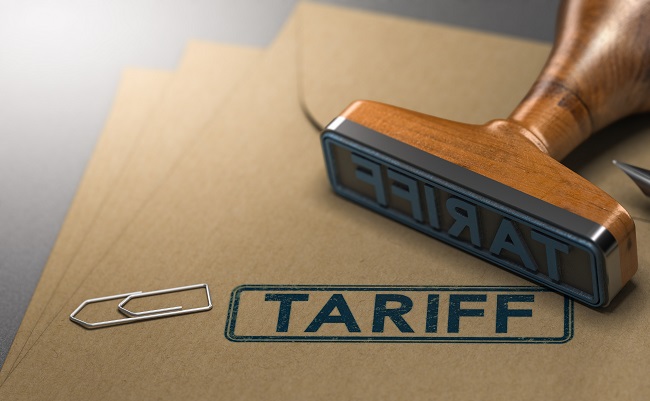 A disagreement over import duties on steel entering Britain has come to the fore amidst the resignation of prime minister Boris Johnson’s ethics adviser.
A disagreement over import duties on steel entering Britain has come to the fore amidst the resignation of prime minister Boris Johnson’s ethics adviser.
Lord Christopher Geidt announced his decision to step down from the role yesterday and letters published by the government today (16 June) have revealed that the prime minister’s apparent desire to maintain current steel tariffs may have proved the final straw.
Geidt, who was asked for his advice on the tariffs, said he had been placed in an “impossible and odious position” because maintaining the protections could breach World Trade Organization (WTO) rules.
What’s the debate about?
The government is currently considering extending import duties on foreign steel to protect domestic producers “from a flood of Chinese imports”, Politico reports.
The Trade Remedies Authority (TRA), which investigates trade protections for UK industries, had advised ministers to scrap tariffs on some types of steel that had been carried over from when the UK left the EU.
Whitehall advisers have told the Daily Mirror that extending the tariffs would also breach WTO anti-competition rules.
Foreign secretary Liz Truss has signalled that she would overrule advice from the TRA to legislate the continuation of tariffs on some types of steel to protect domestic industry, according to the Guardian.
Johnson has described steel as a “critical industry”.
What’s been said
In his resignation letter, Geidt said that being asked to offer a view about the government’s “intention to consider measures which risk a deliberate and purposeful breach of the Ministerial Code” had placed him in an “impossible and odious position”.
In his reply, Johnson noted “decisions related to the Trade Remedies Authority” as those for which Geidt had announced his resignation.
“My intention was to seek your advice on the national interest in protecting a crucial industry, which is protected in other European countries and would suffer material harm if we do not continue to apply such tariffs,” Johnson wrote.
“It would be in line with our domestic law but might be seen to conflict with our obligations under the WTO,” he added. “In seeking your advice before any decision was taken, I was looking to ensure we acted properly with due regard to the Ministerial code”.
Officials have told the FT that the letter was referring to the steel industry.
The TRA has since confirmed that it had carried out “an analytical piece of work designed to inform government decision-making” but that its report “does not contain recommendations from the TRA.”
Safeguards
UK Steel, an industry lobby group, has been urging the government to maintain steel tariffs, with director general Gareth Stace telling Politico that current measures “fully” comply with WTO rules.
"As an independent trading nation, it is more than ever critical that we maintain a robust trade remedies framework to ensure a level playing field in a global market exposed to distortions," he said.
‘Partygate’ saga
A Downing Street official told the FT that colleagues were sceptical as to whether the steel dispute was the main factor behind Geidt’s resignation, calling it “a disingenuous reason”.
Geidt had previously expressed “frustration” over gatherings in Downing Street that broke Covid restrictions during lockdown and also himself came under scrutiny at a Commons public administration committee on Tuesday this week.



